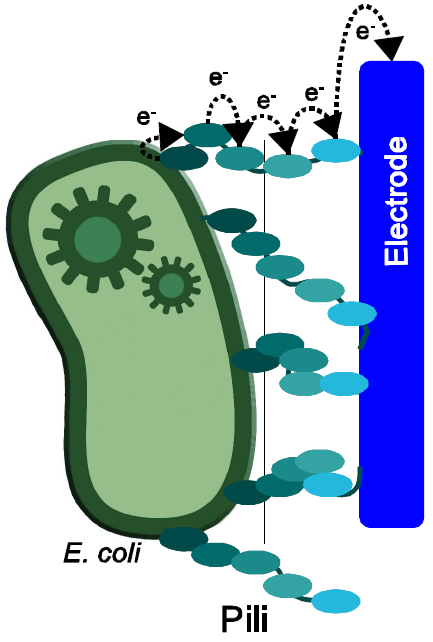Team:Bielefeld-Germany/Biosafety/Biosafety System
From 2013.igem.org
(Created page with "{{Team:Bielefeld-Germany/Header2}} {{Team:Bielefeld-Germany/css/header_cleanup.css}} __NOTOC__ <html> <style> </style> </html> <div id=globalwrapper style="padding-left:20px;...") |
|||
| Line 1: | Line 1: | ||
{{Team:Bielefeld-Germany/Header2}} | {{Team:Bielefeld-Germany/Header2}} | ||
{{Team:Bielefeld-Germany/css/header_cleanup.css}} | {{Team:Bielefeld-Germany/css/header_cleanup.css}} | ||
| + | {{Team:Bielefeld-Germany/css/button.css}} | ||
| + | |||
| + | |||
__NOTOC__ | __NOTOC__ | ||
<html> | <html> | ||
| - | |||
<style> | <style> | ||
| + | h1{padding:10px 0;padding-left:300px; padding-right:350px; margin-top:70px; } | ||
| + | .toc, #toc{width:255px;font-size:85%;} | ||
| + | |||
| + | #globalwrapper ul {padding-left:40px; padding-right:40px;} | ||
| + | #globalwrapper #rightcol ul {padding-left:0px; padding-right:0px;} | ||
| + | |||
| + | h2,h3,h4{clear:both;} | ||
| + | #globalwrapper h4{color:#ff6600; padding-left:20px;} | ||
| + | #globalwrapper div.thumb.tleft{margin-left:20px; margin-right:20px; clear:both;} | ||
| + | |||
| + | #globalwrapper ul {clear:both;} | ||
| + | #globalwrapper ul ul{clear:both;} | ||
| + | #globalwrapper ul{padding-left:60px; padding-right:40px;} | ||
| + | #globalwrapper ul ul{padding-left:40px; padding-right:40px;} | ||
| + | |||
| + | #globalwrapper p{padding-left:0px; padding-right:40px;} | ||
| + | #globalwrapper .bigbutton p{padding-left:5px; padding-right:5px; padding-top:2px;} | ||
| + | |||
| + | .bigbutton{width:150px; height:50px; line-height:50px; font-size:1.2em; margin-right:10px; display:table;} | ||
| + | .bigbutton a{display:block; height:100%;} | ||
| + | |||
| + | .rightcol{ | ||
| + | width:140px; | ||
| + | height:450px; | ||
| + | margin-left:800px; | ||
| + | float:right; | ||
| + | position:fixed; | ||
| + | margin-top:0px; | ||
| + | overflow-y:scroll; | ||
| + | box-shadow:0px 0px 2px 0px grey; | ||
| + | padding:0px 20px; | ||
| + | |||
</style> | </style> | ||
</html> | </html> | ||
| - | <div id=globalwrapper style="padding-left:20px; padding-right:20px; | + | <div id=globalwrapper style="padding-left:20px; padding-right:20px"> |
| + | <div id="leftcol" style="width:750px; float:left; overflow:auto;"> | ||
| + | |||
| + | <html> | ||
| + | <h1>Biosafety System</h1> | ||
| + | <div id="buttonrow" style="padding-top:30px; padding-bottom:70px; padding-left:45px; clear:both;"> | ||
| + | |||
| + | <div class="bigbutton"> | ||
| + | <a href="https://2013.igem.org/Team:Bielefeld-Germany/Biosafety">Biosafety Overview</a></div> | ||
| + | <div class="bigbutton"> | ||
| + | <p><a href="https://2013.igem.org/Team:Bielefeld-Germany/Biosafety/Biosafety_System_M">System <br>TetOR Alive</a></p></div> | ||
| + | <div class="bigbutton"> | ||
| + | <p><a href="https://2013.igem.org/Team:Bielefeld-Germany/Biosafety/Biosafety_System_L">System <br> Lac of Growth</a></p></div> | ||
| + | <div class="bigbutton"> | ||
| + | <p><a href="https://2013.igem.org/Team:Bielefeld-Germany/Biosafety/Biosafety_System_S">System <br> AraCtive</a></p></div> | ||
| + | |||
| + | </div> | ||
| + | </html> | ||
| + | |||
| + | |||
| + | ==Overview== | ||
| + | |||
| + | [[Image:Bielefeld-germany-project-overview-nanowires.png|left|thumb|250px|'''Figure 1:''' Principle of electron transfer from bacteria to anode via nanowires.]] | ||
| + | |||
| + | <p align="justify"> | ||
| + | Multiple bacteria form special, highly conductive pili, which are required for survival in anaerobe environment. Electrons, which are generated through the oxidation of different substrates, can be transported by these pili and transferred to alternative electron-acceptors, such as sulfur or iron. These so called nanowires could furthermore increase the number of bacteria contacting the surface of the anode. These properties make them another interesting option, regarding the optimization of E. coli for the use in MFCs. Because several large gene clusters are required to form nanowires in organisms such as ''Geobacter sulfurreducens'', it will be first investigated, whether the existing type 4 pili are suitable for electron conduction by ''E. coli'' as well. | ||
| + | </p> | ||
| + | |||
| + | |||
| + | |||
| + | |||
| + | <br><br> | ||
| + | |||
| + | |||
| + | |||
<br><br><br><br> | <br><br><br><br> | ||
| - | == | + | |
| + | |||
| + | |||
| + | ==Theory== | ||
| + | |||
| + | |||
| + | |||
| + | |||
| + | ==Genetic Approach== | ||
| + | |||
| + | |||
| + | |||
| + | |||
| + | ==Results== | ||
| + | |||
| + | |||
| + | |||
| + | ==References== | ||
| + | |||
| + | |||
| + | |||
| + | |||
| + | |||
| + | <br><br><br><br> | ||
| + | </div> | ||
| + | |||
| + | |||
| + | |||
| + | |||
| + | |||
| + | <div id="rightcol" style="width:210px; height:450px; margin-left:752px; margin-top:33px; float:right; position:fixed; overflow-y:scroll; box-shadow:0px 0px 2px 0px grey;" padding:0px 20px;> | ||
| + | __TOC__ | ||
| + | <div id="spacer" style="height:300px"></div> | ||
| + | </div> | ||
</div> | </div> | ||
Revision as of 22:03, 29 September 2013
Biosafety System
Overview
Multiple bacteria form special, highly conductive pili, which are required for survival in anaerobe environment. Electrons, which are generated through the oxidation of different substrates, can be transported by these pili and transferred to alternative electron-acceptors, such as sulfur or iron. These so called nanowires could furthermore increase the number of bacteria contacting the surface of the anode. These properties make them another interesting option, regarding the optimization of E. coli for the use in MFCs. Because several large gene clusters are required to form nanowires in organisms such as Geobacter sulfurreducens, it will be first investigated, whether the existing type 4 pili are suitable for electron conduction by E. coli as well.
Theory
Genetic Approach
Results
References
 "
"

